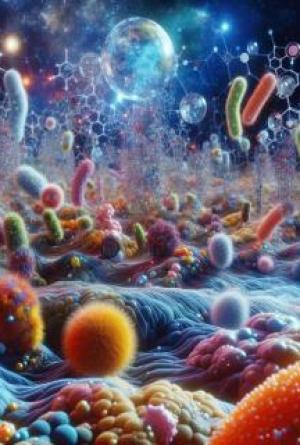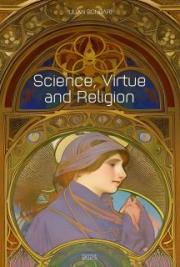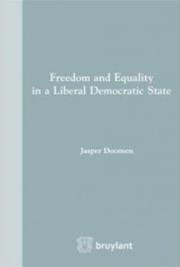Three Dialogues between Hylas and Philonous, in Opposition to Sceptics and Atheists
By
George Berkeley
Web-Books.Com
Three Dialogues between Hylas and Philonous, in Opposition to Sceptics and Atheists
The First Dialogue.........................................................................................................................3
The Second Dialogue .................................................................................................................36
The Third Dialogue .....................................................................................................................50
The First Dialogue
PHILONOUS. Good morrow, Hylas: I did not expect to find you abroad so early.
HYLAS. It is indeed something unusual; but my thoughts were so taken up with a subject I was discoursing of last night, that finding I could not sleep, I resolved to rise and take a turn in the garden.
PHIL. It happened well, to let you see what innocent and agreeable pleasures you lose every morning. Can there be a pleasanter time of the day, or a more delightful season of the year? That purple sky, those wild but sweet notes of birds, the fragrant bloom upon the trees and flowers, the gentle influence of the rising sun, these and a thousand nameless beauties of nature inspire the soul with secret transports; its faculties too being at this time fresh and lively, are fit for those meditations, which the solitude of a garden and tranquillity of the morning naturally dispose us to. But I am afraid I interrupt your thoughts: for you seemed very intent on something.
HYL. It is true, I was, and shall be obliged to you if you will permit me to go on in the same vein; not that I would by any means deprive myself of your company, for my thoughts always flow more easily in conversation with a friend, than when I am alone: but my request is, that you would suffer me to impart my reflexions to you.
PHIL. With all my heart, it is what I should have requested myself if you had not prevented me.
HYL. I was considering the odd fate of those men who have in all ages, through an affectation of being distinguished from the vulgar, or some unaccountable turn of thought, pretended either to believe nothing at all, or to believe the most extravagant things in the world. This however might be borne, if their paradoxes and scepticism did not draw after them some consequences of general disadvantage to mankind. But the mischief lieth here; that when men of less leisure see them who are supposed to have spent their whole time in the pursuits of knowledge professing an entire ignorance of all things, or advancing such notions as are repugnant to plain and commonly received principles, they will be tempted to entertain suspicions concerning the most important truths, which they had hitherto held sacred and unquestionable.
PHIL. I entirely agree with you, as to the ill tendency of the affected doubts of some philosophers, and fantastical conceits of others. I am even so far gone of late in this way of thinking, that I have quitted several of the sublime notions I had got in their schools for vulgar opinions. And I give it you on my word; since this revolt from metaphysical notions to the plain dictates of nature and common sense, I find my understanding strangely enlightened, so that I can now easily comprehend a great many things which before were all mystery and riddle.
HYL. I am glad to find there was nothing in the accounts I heard of you.
PHIL. Pray, what were those?
HYL. You were represented, in last night's conversation, as one who maintained the most extravagant opinion that ever entered into the mind of man, to wit, that there is no such thing as MATERIAL SUBSTANCE in the world.
PHIL. That there is no such thing as what PHILOSOPHERS CALL MATERIAL SUBSTANCE, I am seriously persuaded: but, if I were made to see anything absurd or sceptical in this, I should then have the same reason to renounce this that I imagine I have now to reject the contrary opinion.
HYL. What I can anything be more fantastical, more repugnant to Common Sense, or a more manifest piece of Scepticism, than to believe there is no such thing as MATTER?
PHIL. Softly, good Hylas. What if it should prove that you, who hold there is, are, by virtue of that opinion, a greater sceptic, and maintain more paradoxes and repugnances to Common Sense, than I who believe no such thing?
HYL. You may as soon persuade me, the part is greater than the whole, as that, in order to avoid absurdity and Scepticism, I should ever be obliged to give up my opinion in this point.
PHIL. Well then, are you content to admit that opinion for true, which upon examination shall appear most agreeable to Common Sense, and remote from Scepticism?
HYL. With all my heart. Since you are for raising disputes about the plainest things in nature, I am content for once to hear what you have to say.
PHIL. Pray, Hylas, what do you mean by a SCEPTIC?
HYL. I mean what all men mean--one that doubts of everything.
PHIL. He then who entertains no doubts concerning some particular point, with regard to that point cannot be thought a sceptic.
HYL. I agree with you.
PHIL. Whether doth doubting consist in embracing the affirmative or negative side of a question?
HYL. In neither; for whoever understands English cannot but know that DOUBTING signifies a suspense between both.
PHIL. He then that denies any point, can no more be said to doubt of it, than he who affirmeth it with the same degree of assurance.
HYL. True.
PHIL. And, consequently, for such his denial is no more to be esteemed a sceptic than the other.
HYL. I acknowledge it.
PHIL. How cometh it to pass then, Hylas, that you pronounce me A SCEPTIC, because I deny what you affirm, to wit, the existence of Matter? Since, for aught you can tell, I am as peremptory in my denial, as you in your affirmation.
HYL. Hold, Philonous, I have been a little out in my definition; but every false step a man makes in discourse is not to be insisted on. I said indeed that a SCEPTIC was one who doubted of everything; but I should have added, or who denies the reality and truth of things.
PHIL. What things? Do you mean the principles and theorems of sciences? But these you know are universal intellectual notions, and consequently independent of Matter. The denial therefore of this doth not imply the denying them.
HYL. I grant it. But are there no other things? What think you of distrusting the senses, of denying the real existence of sensible things, or pretending to know nothing of them. Is not this sufficient to denominate a man a SCEPTIC?
PHIL. Shall we therefore examine which of us it is that denies the reality of sensible things, or professes the greatest ignorance of them; since, if I take you rightly, he is to be esteemed the greatest SCEPTIC?
HYL. That is what I desire.
PHIL. What mean you by Sensible Things?
HYL. Those things which are perceived by the senses. Can you imagine that I mean anything else?
PHIL. Pardon me, Hylas, if I am desirous clearly to apprehend your notions, since this may much shorten our inquiry. Suffer me then to ask you this farther question. Are those things only perceived by the senses which are perceived immediately? Or, may those things properly be said to be SENSIBLE which are perceived mediately, or not without the intervention of others?
HYL. I do not sufficiently understand you.
PHIL. In reading a book, what I immediately perceive are the letters; but mediately, or by means of these, are suggested to my mind the notions of God, virtue, truth, &c. Now, that the letters are truly sensible things, or perceived by sense, there is no doubt: but I would know whether you take the things suggested by them to be so too.
HYL. No, certainly: it were absurd to think GOD or VIRTUE sensible things; though they may be signified and suggested to the mind by sensible marks, with which they have an arbitrary connexion.
PHIL. It seems then, that by SENSIBLE THINGS you mean those only which can be perceived IMMEDIATELY by sense?
HYL. Right.
PHIL. Doth it not follow from this, that though I see one part of the sky red, and another blue, and that my reason doth thence evidently conclude there must be some cause of that diversity of colours, yet that cause cannot be said to be a sensible thing, or perceived by the sense of seeing?
HYL. It doth.
PHIL. In like manner, though I hear variety of sounds, yet I cannot be said to hear the causes of those sounds?
HYL. You cannot.
PHIL. And when by my touch I perceive a thing to be hot and heavy, I cannot say, with any truth or propriety, that I feel the cause of its heat or weight?
HYL. To prevent any more questions of this kind, I tell you once for all, that by SENSIBLE THINGS I mean those only which are perceived by sense; and that in truth the senses perceive nothing which they do not perceive IMMEDIATELY: for they make no inferences. The deducing therefore of causes or occasions from effects and appearances, which alone are perceived by sense, entirely relates to reason.
PHIL. This point then is agreed between us--That SENSIBLE THINGS ARE THOSE ONLY WHICH ARE IMMEDIATELY PERCEIVED BY SENSE. You will farther inform me, whether we immediately perceive by sight anything beside light, and colours, and figures; or by hearing, anything but sounds; by the palate, anything beside tastes; by the smell, beside odours; or by the touch, more than tangible qualities.
HYL. We do not.
PHIL. It seems, therefore, that if you take away all sensible qualities, there remains nothing sensible?
HYL. I grant it.
PHIL. Sensible things therefore are nothing else but so many sensible qualities, or combinations of sensible qualities?
HYL. Nothing else.
PHIL. HEAT then is a sensible thing?
HYL. Certainly.
PHIL. Doth the REALITY of sensible things consist in being perceived? or, is it something distinct from their being perceived, and that bears no relation to the mind?
HYL. To EXIST is one thing, and to be PERCEIVED is another.
PHIL. I speak with regard to sensible things only. And of these I ask, whether by their real existence you mean a subsistence exterior to the mind, and distinct from their being perceived?
HYL. I mean a real absolute being, distinct from, and without any relation to, their being perceived.
PHIL. Heat therefore, if it be allowed a real being, must exist without the mind?
HYL. It must.
PHIL. Tell me, Hylas, is this real existence equally compatible to all degrees of heat, which we perceive; or is there any reason why we should attribute it to some, and deny it to others? And if there be, pray let me know that reason.
HYL. Whatever degree of heat we perceive by sense, we may be sure the same exists in the object that occasions it.
PHIL. What! the greatest as well as the least?
HYL. _I_ tell you, the reason is plainly the same in respect of both. They are both perceived by sense; nay, the greater degree of heat is more sensibly perceived; and consequently, if there is any difference, we are more certain of its real existence than we can be of the reality of a lesser degree.
PHIL. But is not the most vehement and intense degree of heat a very great pain?
HYL. No one can deny it.
PHIL. And is any unperceiving thing capable of pain or pleasure?
HYL. No, certainly.
PHIL. Is your material substance a senseless being, or a being endowed with sense and perception?
HYL. It is senseless without doubt.
PHIL. It cannot therefore be the subject of pain?
HYL. By no means.
PHIL. Nor consequently of the greatest heat perceived by sense, since you acknowledge this to be no small pain?
HYL. I grant it.
PHIL. What shall we say then of your external object; is it a material Substance, or no?
HYL. It is a material substance with the sensible qualities inhering in it.
PHIL. How then can a great heat exist in it, since you own it cannot in a material substance? I desire you would clear this point.
HYL. Hold, Philonous, I fear I was out in yielding intense heat to be a pain. It should seem rather, that pain is something distinct from heat, and the consequence or effect of it. PHIL. Upon putting your hand near the fire, do you perceive one simple uniform sensation, or two distinct sensations?
HYL. But one simple sensation.
PHIL. Is not the heat immediately perceived?
HYL. It is.
PHIL. And the pain?
HYL. True.
PHIL. Seeing therefore they are both immediately perceived at the same time, and the fire affects you only with one simple or uncompounded idea, it follows that this same simple idea is both the intense heat immediately perceived, and the pain; and, consequently, that the intense heat immediately perceived is nothing distinct from a particular sort of pain.
HYL. It seems so.
PHIL. Again, try in your thoughts, Hylas, if you can conceive a vehement sensation to be without pain or pleasure.
HYL. I cannot.
PHIL. Or can you frame to yourself an idea of sensible pain or pleasure in general, abstracted from every particular idea of heat, cold, tastes, smells? &c.
HYL. I do not find that I can.
PHIL. Doth it not therefore follow, that sensible pain is nothing distinct from those sensations or ideas, in an intense degree?
HYL. It is undeniable; and, to speak the truth, I begin to suspect a very great heat cannot exist but in a mind perceiving it.
PHIL. What! are you then in that sceptical state of suspense, between affirming and denying?
HYL. I think I may be positive in the point. A very violent and painful heat cannot exist without the mind.
PHIL. It hath not therefore according to you, any REAL being?
HYL. I own it.
PHIL. Is it therefore certain, that there is no body in nature really hot?
HYL. I have not denied there is any real heat in bodies. I only say, there is no such thing as an intense real heat.
PHIL. But, did you not say before that all degrees of heat were equally real; or, if there was any difference, that the greater were more undoubtedly real than the lesser?
HYL. True: but it was because I did not then consider the ground there is for distinguishing between them, which I now plainly see. And it is this: because intense heat is nothing else but a particular kind of painful sensation; and pain cannot exist but in a perceiving being; it follows that no intense heat can really exist in an unperceiving corporeal substance. But this is no reason why we should deny heat in an inferior degree to exist in such a substance.
PHIL. But how shall we be able to discern those degrees of heat which exist only in the mind from those which exist without it?
HYL. That is no difficult matter. You know the least pain cannot exist unperceived; whatever, therefore, degree of heat is a pain exists only in the mind. But, as for all other degrees of heat, nothing obliges us to think the same of them.
PHIL. I think you granted before that no unperceiving being was capable of pleasure, any more than of pain.
HYL. I did.
PHIL. And is not warmth, or a more gentle degree of heat than what causes uneasiness, a pleasure?
HYL. What then?
PHIL. Consequently, it cannot exist without the mind in an unperceiving substance, or body.
HYL. So it seems.
PHIL. Since, therefore, as well those degrees of heat that are not painful, as those that are, can exist only in a thinking substance; may we not conclude that external bodies are absolutely incapable of any degree of heat whatsoever?
HYL. On second thoughts, I do not think it so evident that warmth is a pleasure as that a great degree of heat is a pain.
PHIL. _I_ do not pretend that warmth is as great a pleasure as heat is a pain. But, if you grant it to be even a small pleasure, it serves to make good my conclusion.
HYL. I could rather call it an INDOLENCE. It seems to be nothing more than a privation of both pain and pleasure. And that such a quality or state as this may agree to an unthinking substance, I hope you will not deny.
PHIL. If you are resolved to maintain that warmth, or a gentle degree of heat, is no pleasure, I know not how to convince you otherwise than by appealing to your own sense. But what think you of cold?
HYL. The same that I do of heat. An intense degree of cold is a pain; for to feel a very great cold, is to perceive a great uneasiness: it cannot therefore exist without the mind; but a lesser degree of cold may, as well as a lesser degree of heat.
PHIL. Those bodies, therefore, upon whose application to our own, we perceive a moderate degree of heat, must be concluded to have a moderate degree of heat or warmth in them; and those, upon whose application we feel a like degree of cold, must be thought to have cold in them.
HYL. They must.
PHIL. Can any doctrine be true that necessarily leads a man into an absurdity?
HYL. Without doubt it cannot.
PHIL. Is it not an absurdity to think that the same thing should be at the same time both cold and warm?
HYL. It is.
PHIL. Suppose now one of your hands hot, and the other cold, and that they are both at once put into the same vessel of water, in an intermediate state; will not the water seem cold to one hand, and warm to the other?
HYL. It will.
PHIL. Ought we not therefore, by your principles, to conclude it is really both cold and warm at the same time, that is, according to your own concession, to believe an absurdity?
HYL. I confess it seems so.
PHIL. Consequently, the principles themselves are false, since you have granted that no true principle leads to an absurdity.
HYL. But, after all, can anything be more absurd than to say, THERE IS NO HEAT IN THE FIRE?
PHIL. To make the point still clearer; tell me whether, in two cases exactly alike, we ought not to make the same judgment?
HYL. We ought.
PHIL. When a pin pricks your finger, doth it not rend and divide the fibres of your flesh?
HYL. It doth.
PHIL. And when a coal burns your finger, doth it any more?
HYL. It doth not. PHIL. Since, therefore, you neither judge the sensation itself occasioned by the pin, nor anything like it to be in the pin; you should not, conformably to what you have now granted, judge the sensation occasioned by the fire, or anything like it, to be in the fire.
HYL. Well, since it must be so, I am content to yield this point, and acknowledge that heat and cold are only sensations existing in our minds. But there still remain qualities enough to secure the reality of external things.
PHIL. But what will you say, Hylas, if it shall appear that the case is the same with regard to all other sensible qualities, and that they can no more be supposed to exist without the mind, than heat and cold?
HYL. Then indeed you will have done something to the purpose; but that is what I despair of seeing proved.
PHIL. Let us examine them in order. What think you of TASTES, do they exist without the mind, or no?
HYL. Can any man in his senses doubt whether sugar is sweet, or wormwood bitter?
PHIL. Inform me, Hylas. Is a sweet taste a particular kind of pleasure or pleasant sensation, or is it not?
HYL. It is.
PHIL. And is not bitterness some kind of uneasiness or pain?
HYL. I grant it.
PHIL. If therefore sugar and wormwood are unthinking corporeal substances existing without the mind, how can sweetness and bitterness, that is, Pleasure and pain, agree to them?
HYL. Hold, Philonous, I now see what it was delude time. You asked whether heat and cold, sweetness at were not particular sorts of pleasure and pain; to which simply, that they were. Whereas I should have thus distinguished: those qualities, as perceived by us, are pleasures or pair existing in the external objects. We must not therefore conclude absolutely, that there is no heat in the fire, or sweetness in the sugar, but only that heat or sweetness, as perceived by us, are not in the fire or sugar. What say you to this?
PHIL. I say it is nothing to the purpose. Our discourse proceeded altogether concerning sensible things, which you defined to be, THE THINGS WE IMMEDIATELY PERCEIVE BY OUR SENSES. Whatever other qualities, therefore, you speak of as distinct from these, I know nothing of them, neither do they at all belong to the point in dispute. You may, indeed, pretend to have discovered certain qualities which you do not perceive, and assert those insensible qualities exist in fire and sugar. But what use can be made of this to your present purpose, I am at a loss to conceive. Tell me then once more, do you acknowledge that heat and cold, sweetness and bitterness (meaning those qualities which are perceived by the senses), do not exist without the mind?
HYL. I see it is to no purpose to hold out, so I give up the cause as to those mentioned qualities. Though I profess it sounds oddly, to say that sugar is not sweet.
PHIL. But, for your farther satisfaction, take this along with you: that which at other times seems sweet, shall, to a distempered palate, appear bitter. And, nothing can be plainer than that divers persons perceive different tastes in the same food; since that which one man delights in, another abhors. And how could this be, if the taste was something really inherent in the food?
HYL. I acknowledge I know not how.
PHIL. In the next place, ODOURS are to be considered. And, with regard to these, I would fain know whether what hath been said of tastes doth not exactly agree to them? Are they not so many pleasing or displeasing sensations?
HYL. They are.
PHIL. Can you then conceive it possible that they should exist in an unperceiving thing?
HYL. I cannot.
PHIL. Or, can you imagine that filth and ordure affect those brute a







